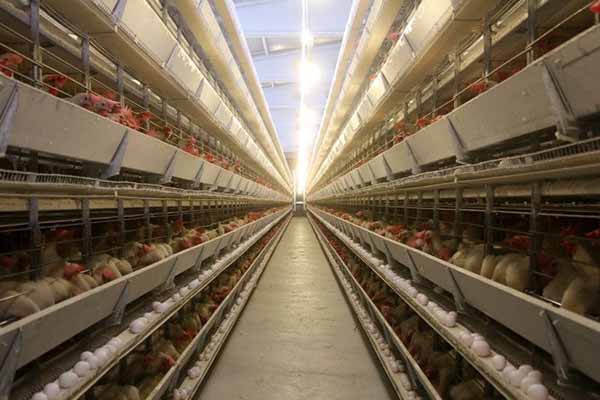Uganda Chicken Farm Scientific Management Experience
Time : 2025-04-25
When it comes to chicken farming, Uganda has made significant strides in implementing scientific management practices. In this article, we’ll delve into the experiences and strategies that have helped Uganda’s chicken farms thrive. So, let’s get to it!
Introduction to Uganda’s Chicken Farming Industry
Uganda, located in East Africa, has a bustling poultry industry that contributes to the country’s food security. Over the years, the sector has seen remarkable growth, with an increasing number of farmers venturing into chicken farming. This growth is attributed to various factors, including the government’s support, technological advancements, and scientific management practices.
Understanding Scientific Management in Chicken Farming
Scientific management in chicken farming refers to the application of systematic methods and principles to optimize farm operations. It involves a combination of knowledge, skills, and technology to enhance productivity, reduce costs, and improve the overall quality of chicken production.
Key Aspects of Scientific Management in Uganda Chicken Farms
1. Genetic Improvement
Genetic improvement is a crucial aspect of scientific management in chicken farming. Uganda’s chicken farms have adopted advanced breeding techniques to enhance the productivity and quality of the birds. By selecting the best parents for breeding, farmers ensure that their chickens are genetically superior, resulting in higher egg production and better meat quality.
2. Biosecurity Measures
Biosecurity is vital in preventing diseases that can decimate a chicken flock. Uganda’s chicken farms have implemented strict biosecurity measures, including regular cleaning and disinfection of farms, isolation of new arrivals, and vaccination programs. These practices have significantly reduced the incidence of diseases, leading to healthier birds and higher profits.
3. Feeding and Nutrition
Proper feeding and nutrition are essential for the growth and development of chickens. Uganda’s chicken farms have adopted scientifically formulated diets that meet the nutritional requirements of different growth stages. This approach ensures that the birds receive the right balance of nutrients, leading to better growth rates and higher egg production.
4. Environmental Management
Creating an optimal environment for chickens is crucial for their health and productivity. Uganda’s chicken farms have focused on providing suitable housing, adequate ventilation, and proper temperature control. These environmental management practices have minimized stress and disease, resulting in happier and healthier birds.
5. Training and Education
Training and education play a significant role in the success of Uganda’s chicken farms. Farmers and workers are continuously trained on best practices in chicken farming, including biosecurity, feeding, and disease prevention. This ensures that everyone involved in the process is equipped with the necessary knowledge and skills to maintain high standards of chicken production.
Success Stories from Uganda Chicken Farms
Several Uganda chicken farms have excelled in implementing scientific management practices. Here are a few success stories:
1. Farm A
Farm A, located in the central part of Uganda, has seen a remarkable transformation since adopting scientific management practices. The farm has invested in modern equipment, trained its staff, and implemented strict biosecurity measures. As a result, the farm’s productivity has increased significantly, and the quality of its products has improved.
2. Farm B
Farm B, situated in the northern part of Uganda, has also experienced great success through scientific management. The farm has focused on genetic improvement and proper feeding and nutrition. This has led to higher egg production and better meat quality, making the farm a popular choice among consumers.
Conclusion
In conclusion, scientific management has played a pivotal role in the growth and success of Uganda’s chicken farming industry. By implementing best practices in genetic improvement, biosecurity, feeding and nutrition, environmental management, and training, farmers have been able to enhance productivity, reduce costs, and improve the quality of their products.
As the industry continues to evolve, it is essential for farmers to stay abreast of new technologies and management techniques. By doing so, Uganda’s chicken farming industry will continue to thrive, contributing to the country’s food security and economic growth.












